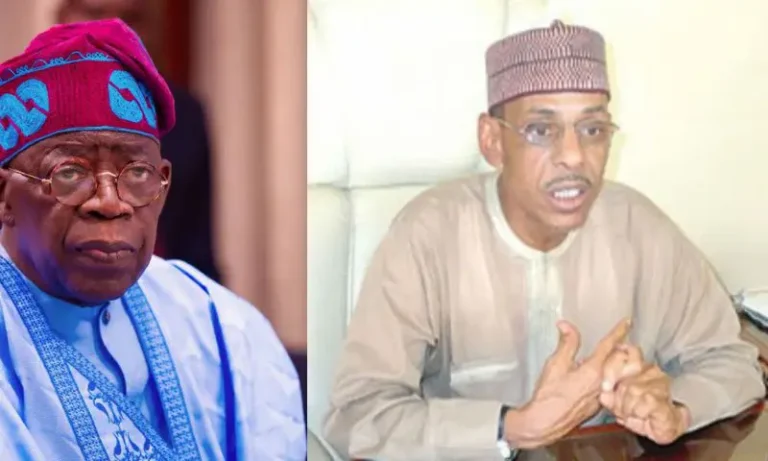Dr. Hakeem Baba-Ahmed, a former aide to President Bola Ahmed Tinubu in an interview on ARISE TV last night, stated that his time in the administration fell short of expectations.
Baba-Ahmed, who served in the Office of the Vice President, disclosed that he joined the government with high hopes but found the experience disappointing.
When asked whether Vice President Kashim Shettima is being systematically sidelined by President Tinubu, Baba-Ahmed dismissed the idea, stating, “No, I didn’t see any of these…” He explained that the perceived marginalisation of vice presidents is not new and has occurred in past administrations as well. “If the president feels that the office of the vice president is not that important in the administration and we have seen that many times, basically, that was what I met,” he said.
Baba-Ahmed pointed out the recurring lack of defined roles for vice presidents, despite their official rank, adding that despite seeing and speaking with Vice President Shettima almost daily, the role demands more than conversations.
Reflecting on his interactions within the presidency, he said, “I only saw President Tinubu three times in the mosque in the presidential villa. But I had never had a chance to sit down and talk with President Tinubu. I think part of the problem is that Tinubu never had time for people like us. I don’t think he had time for a lot of people working for him,” he added.
Describing President Tinubu as “really and genuinely isolated,” Baba-Ahmed stressed that such isolation, whether by design or circumstance, poses a significant problem for the country. “The bottom line is, he ought to be available for the people he trusted and worked for him. And that’s the problem for the country, not for him,” he said. He expressed concerns about the kind of advice reaching the president, observing, “If you hear people who are close to him speak about Nigeria, you will hear as if they’re living in different worlds. That is the most frustrating thing for me.”
Baba-Ahmed painted a bleak picture of the national mood, highlighting rising despair and disillusionment. “We work in the Villa and we go home and meet the people, and we know how the country is—how desperate people are, the difficult lives, the insecurity. People are losing hope, asking what is the value of this democracy. And sometimes people ask what are we doing there? Asking us, are we really advising the president about some of these things?” he said. He stressed the importance of the president having capable advisers addressing real issues, saying, “If the president has a quality of people talking and advising him about the real issues on ground, I think the country would be better.”
Addressing recent political realignments, Baba-Ahmed distanced himself from ongoing coalitions, expressing no interest in participating in them in the future. He also reiterated views he had previously expressed in an open letter urging President Tinubu to consider stepping aside ahead of the 2027 general elections. Baba-Ahmed appealed to Tinubu to forego re-election ambitions for the sake of national renewal. “Step aside—not for your opponents, but for a new generation of Nigerians who can carry the nation forward with fresh energy and ideas. Our generation has done its time. It would be a masterstroke if you and your party yielded the field to new voices and new leadership. That way, you could catalyse a peaceful, historic transformation and inspire a new political culture rooted in merit, unity, and progress,” he said.
He called on President Tinubu to reflect deeply on the legacy he wishes to leave behind, warning, “You hold what your opposition lacks: the power to reduce the harshness of life for the average Nigerian. Use it well. Watch 2027, yes—but don’t become consumed by it.”
Reflecting further on his time in office, Baba-Ahmed, who recently resigned as Special Adviser on Political Matters to the Vice President, acknowledged the administration inherited a battered economy and a weary populace. However, he criticised the government’s failure to transform the energy from Tinubu’s inauguration into effective leadership. He described the Renewed Hope Agenda as a collection of campaign slogans rather than a coherent governance blueprint and faulted the composition of Tinubu’s cabinet, saying more than half its members “have no business managing an administration tasked with improving security, livelihoods, or public trust.”
Baba-Ahmed revealed that throughout his 18 months in government, he never had a one-on-one meeting with President Tinubu and warned that a fixation on 2027 political calculations could undermine governance and any hope of meaningful progress during the president’s current term.

